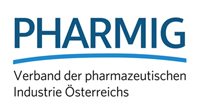The introduction of an evaluation board in the hospital sector would worsen patient care.
If it is no longer the responsibility of the treating doctors to decide together with those affected about the use of therapy, but of a board that is mostly remote from patients and non-specialists in a bureaucratic process that takes months, this will definitely worsen the care. Therapies are either made available with a delay or are even prevented altogether. This is particularly fatal when it comes to serious illnesses such as cancer or rare diseases, where every day counts for the patients.
Mag. Alexander Herzog, Secretary General of PHARMIG
Vienna (OTS) – As part of the health care reform initiated by Health Minister Johannes Rauch, it is planned to have specialized and innovative therapies evaluated by a newly established evaluation board before they are used in hospitals. The goal is to achieve a uniform level of care with highly innovative therapies in hospitals throughout Austria. However, Alexander Herzog, Secretary General of PHARMIG, strictly criticizes this new, bureaucratic measure: “If it is no longer the responsibility of the treating doctors to decide together with those affected about the use of therapy, but of a board that is mostly remote from patients and non-specialists in a bureaucratic process that takes months, this will definitely worsen the care. Therapies are either made available with a delay or are even prevented altogether. This is particularly fatal when it comes to serious illnesses such as cancer or rare diseases, where every day counts for the patients.”
Specifically, the composition of the committee is criticized because it lacks the specialist medical expertise required for each indication area and patient organizations are completely excluded. “This means that the decision about the use of therapies is dominated by people who are actually unable to do so and who have an economic and not a medical or patient-oriented view of the therapies,” says Herzog.
Although three pharmacologists are planned and medical experts can be called in if necessary, this only represents the necessary specialist perspective to an extremely limited extent. The patient advocacy group should also be a permanent part of the board, but without voting rights. Herzog says: “Instead of including patient representatives who can make important, disease-specific contributions to a therapy decision, they are completely left out. I lack any understanding here why people believe they can improve care in this way.”
The planned evaluation board would also send the wrong signal towards drug research. “The fact is that clinical research is increasingly taking place in those countries that enable rapid and early access to newly developed therapies through appropriately supportive framework conditions. If this is not the case, this can lead to innovative therapies becoming available later, to a limited extent or not at all. This danger exists due to the evaluation board,” says Herzog. The industry representative believes that Austria as a research location should not be further endangered, especially in view of the decline in clinical studies being observed in Europe.
“In order to prevent a deterioration in care, any innovations in the health system should be discussed with the system partners. “In the ideal case, negative consequences for patients and for Austria as a medical location can be avoided,” Herzog is convinced.
About PHARMIG: PHARMIG is the voluntary interest group of the Austrian pharmaceutical industry. The association currently has around 120 members (as of December 2023), who cover a good 95 percent of the medication market. PHARMIG and its member companies stand for the best possible security of supply of medicines in the healthcare system and ensure social and medical progress through quality and innovation.
Questions & Contact:
PHARMIG – Association of the Austrian Pharmaceutical Industry
Peter Richter, BA MA MBA
Head of Communications & PR
+43 664 8860 5264
peter.richter@pharmig.at
www.pharmig.at
